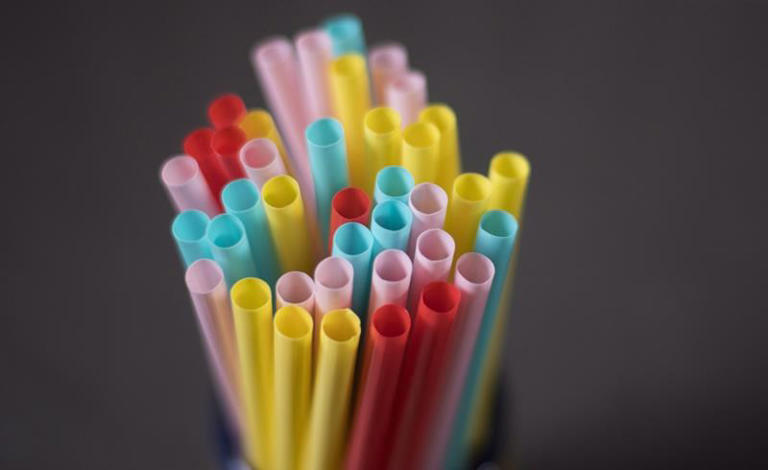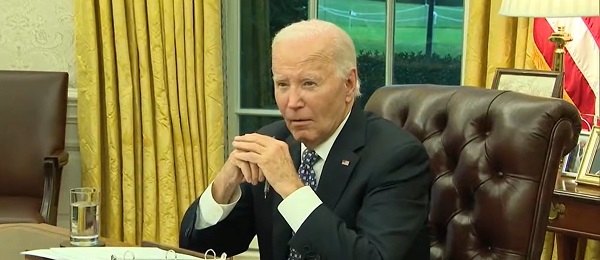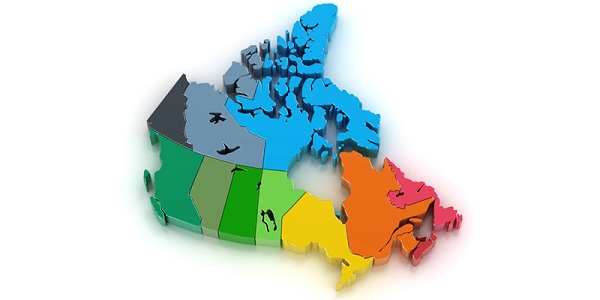Business
Strike Two for Guilbeault – Federal Court Overturns Plastics Ban

From EnergyNow.ca

In a welcome decision by the Federal Court, the plastics ban first implemented in 2022 by Environment Minister Steven Guilbeault has been struck down by the Federal Court. Catherine Swift, President of the Coalition of Concerned Manufacturers and Businesses Canada (CCMBC) stated “Every one of the three reasons this ban was opposed by the plastics industry and the governments of Alberta and Saskatchewan were supported by this court decision. It was a slam dunk against overreach by the Environment Minister and the Trudeau government.”
The court decision cited as unreasonable the inclusion of plastic material as toxic under the Environmental Protection Act, as well as deeming the Environment Minister’s refusal to have a Board of Review assess the risks of plastic materials unreasonable. In addition, as the provinces of Alberta and Saskatchewan joined in the industry’s legal action on the basis that the federal government was overstepping its jurisdiction and the law was effectively unconstitutional, the court agreed with that as well.
As an organization that represents a number of plastics manufacturers as well as oil and gas producers which provide the raw material for the plastics industry, the CCMBC views this decision as sensible and fact-based. Swift commented that “The issue with plastic has never been that it should be eliminated, but rather that it should be properly recycled. The plastics industry has for years made many solid recommendations as to how that can be achieved.” The court agreed that plastics are ubiquitous in our daily lives. Plastic products are also irreplaceable in many essential areas such as health care, food packaging and industrial products. In many cases, plastics also are positive for the environment, such as when they replace heavier materials in the auto sector, enhancing the fuel efficiency of automobiles.
This is the second time in the past month that Guilbeault has been rebuked by Canadian courts. In mid-October, the Supreme Court of Canada ruled that the federal Impact Assessment Act (also known as the “no more pipelines” bill) was unconstitutional. These decisions could also be precedent-setting for future legal actions against federal legislation, such as the Clean Electricity
Regulations that are now under consideration and are widely considered to be unconstitutional as they impinge on provincial jurisdiction over the electricity system.
Swift concluded “This federal government has made a habit of intruding on provincial jurisdiction. Now that two court decisions have ruled against them on important issues, they will hopefully take more care in future to respect the Constitution and make realistic decisions that benefit Canadians, not punish them.”
The CCMBC was formed in 2016 with a mandate to advocate for proactive and innovative policies that are conducive to manufacturing and business retention and safeguarding job growth in Canada.
Business
‘Context Of Chemsex’: Biden-Harris Admin Dumps Millions Into Developing Drug-Fueled Gay Sex App

 From the Daily Caller News Foundation
From the Daily Caller News Foundation
By Owen Klinsky
The Biden-Harris administration is spending millions funding a project to advise homosexual men on how to more safely engage in drug-fueled intercourse.
The University of Connecticut (UCONN) in July announced a five-year, $3.4 million grant from the U.S. National Institute of Health (NIH) for Assistant Professor Roman Shrestha to develop his app JomCare — “a smartphone-based just-in-time adaptive intervention aimed at improving access to HIV- and substance use-related harm reduction services for Malaysian GBMSM [gay, bisexual, and other men who have sex with men] engaged in chemsex,” university news website UCONN Today reported. “Chemsex,” according to Northern Irish LGBTQ+ nonprofit the Rainbow Project, is the involvement of drug use in one’s sex life, and typically involves Methamphetamine (crystal meth), Mephedrone (meth), and GHB and GBL (G).
Examples of the app’s use-cases include providing a user who has reported injecting drugs with prompts about ordering an at-home HIV test kit and employing safe drug injection practices, UCONN Today reported. The app is also slated to provide same-day delivery of HIV prevention drug PrEP, HIV self-testing kits and even a mood tracker.
“In Malaysia, our research has indicated that harm reduction needs of GBMSM [gay, bisexual, and other men who have sex with men] engaged in chemsex are not being adequately met,” Shrestha told UCONN Today. “Utilizing smartphone apps and other mHealth tools presents a promising and cost-effective approach to expand access to these services.”
Homosexuality is illegal in Malaysia and is punishable by imprisonment, according to digital LGBTQ+ rights publication Equaldex. Drug use, including of cannabis, is illegal in Malaysia, and drug trafficking can be a capital offense.
The Old Border Czar VS The New Border Czar pic.twitter.com/9Ie8JRsroR
— Daily Caller (@DailyCaller) November 12, 2024
The NIH disbursed $773,845 to Shrestha in July to conduct a 90-day trial testing the efficacy of JomCare among 482 chemsex-involved Malaysian gays. It also provided Shrestha with $191,417 in 2022 to “facilitate access to gender-affirming health care” for transgender women in the country.
“Gender-affirming care” is a euphemism used to describe a wide range of procedures, including sometimes irreversible hormone treatments that can lead to infertility as well as irreversible surgeries like mastectomies, phalloplasties and vaginoplasties.
Shrestha has a track record of researching mobile health (mHealth) initiatives for foreign homosexuals, co-authoring a 2024 study entitled, “Preferences for mHealth Intervention to Address Mental Health Challenges Among Men Who Have Sex With Men in Nepal.”
The proliferation of LGBT rights has been a “foreign policy priority” under the Biden-Harris administration, a State Department spokesperson previously told the Daily Caller News Foundation, with President Joe Biden instructing federal government department heads to “to advance the human rights of LGBTQI+ persons.”
“Around the globe, including here at home, brave lesbian, gay, bisexual, transgender, queer, and intersex (LGBTQI+) activists are fighting for equal protection under the law, freedom from violence, and recognition of their fundamental human rights,” a 2021 White House memorandum states. “The United States belongs at the forefront of this struggle — speaking out and standing strong for our most dearly held values.”
President-elect Donald Trump announced on Nov. 12 that Elon Musk and Vivek Ramaswamy would collaborate to establish a new Department of Government Efficiency (DOGE), with Musk claiming the agency would feature a leaderboard for the “most insanely dumb spending of your tax dollars.” Some DOGE cuts could come from LGBTQ+ programs, such as a grant from the United States Agency for International Development to perform sex changes in Guatemala and State Department funding for the showing of a play in North Macedonia entitled, “Angels in America: A Gay Fantasia on National Themes.”
“The woke mind virus consists of creating very, very divisive identity politics…[that] amplifies racism; amplifies, frankly, sexism; and all of the -isms while claiming to do the opposite,” Musk said at an event in Italy in December 2023, according to The Wall Street Journal. “It actually divides people and makes them hate each other and hate themselves.”
Shrestha and the NIH did not respond to requests for comment. When reached for comment, a UCONN spokeswoman told the Daily Caller News Foundation that, “specific questions about the grant and the decision to award it to our faculty member should be directed to the NIH, since that’s the funding agency.”
Business
Broken ‘equalization’ program bad for all provinces

From the Fraser Institute
By Alex Whalen and Tegan Hill
Back in the summer at a meeting in Halifax, several provincial premiers discussed a lawsuit meant to force the federal government to make changes to Canada’s equalization program. The suit—filed by Newfoundland and Labrador and backed by British Columbia, Saskatchewan and Alberta—effectively argues that the current formula isn’t fair. But while the question of “fairness” can be subjective, its clear the equalization program is broken.
In theory, the program equalizes the ability of provinces to deliver reasonably comparable services at a reasonably comparable level of taxation. Any province’s ability to pay is based on its “fiscal capacity”—that is, its ability to raise revenue.
This year, equalization payments will total a projected $25.3 billion with all provinces except B.C., Alberta and Saskatchewan to receive some money. Whether due to higher incomes, higher employment or other factors, these three provinces have a greater ability to collect government revenue so they will not receive equalization.
However, contrary to the intent of the program, as recently as 2021, equalization program costs increased despite a decline in the fiscal capacity of oil-producing provinces such as Alberta, Saskatchewan, and Newfoundland and Labrador. In other words, the fiscal capacity gap among provinces was shrinking, yet recipient provinces still received a larger equalization payment.
Why? Because a “fixed-growth rule,” introduced by the Harper government in 2009, ensures that payments grow roughly in line with the economy—even if the gap between richer and poorer provinces shrinks. The result? Total equalization payments (before adjusting for inflation) increased by 19 per cent between 2015/16 and 2020/21 despite the gap in fiscal capacities between provinces shrinking during this time.
Moreover, the structure of the equalization program is also causing problems, even for recipient provinces, because it generates strong disincentives to natural resource development and the resulting economic growth because the program “claws back” equalization dollars when provinces raise revenue from natural resource development. Despite some changes to reduce this problem, one study estimated that a recipient province wishing to increase its natural resource revenues by a modest 10 per cent could face up to a 97 per cent claw back in equalization payments.
Put simply, provinces that generally do not receive equalization such as Alberta, B.C. and Saskatchewan have been punished for developing their resources, whereas recipient provinces such as Quebec and in the Maritimes have been rewarded for not developing theirs.
Finally, the current program design also encourages recipient provinces to maintain high personal and business income tax rates. While higher tax rates can reduce the incentive to work, invest and be productive, they also raise the national standard average tax rate, which is used in the equalization allocation formula. Therefore, provinces are incentivized to maintain high and economically damaging tax rates to maximize equalization payments.
Unless premiers push for reforms that will improve economic incentives and contain program costs, all provinces—recipient and non-recipient—will suffer the consequences.
Authors:
-

 ESG2 days ago
ESG2 days agoCan’t afford Rent? Groceries for your kids? Trudeau says suck it up and pay the tax!
-

 John Stossel2 days ago
John Stossel2 days agoGreen Energy Needs Minerals, Yet America Blocks New Mines
-

 Daily Caller2 days ago
Daily Caller2 days agoLos Angeles Passes ‘Sanctuary City’ Ordinance In Wake Of Trump’s Deportation Plan
-

 Alberta2 days ago
Alberta2 days agoProvince considering new Red Deer River reservoir east of Red Deer
-

 Addictions2 days ago
Addictions2 days agoBC Addictions Expert Questions Ties Between Safer Supply Advocates and For-Profit Companies
-

 Aristotle Foundation2 days ago
Aristotle Foundation2 days agoToronto cancels history, again: The irony and injustice of renaming Yonge-Dundas Square to Sankofa Square
-

 armed forces1 day ago
armed forces1 day agoJudge dismisses Canadian military personnel’s lawsuit against COVID shot mandate
-

 Business22 hours ago
Business22 hours agoCBC’s business model is trapped in a very dark place





